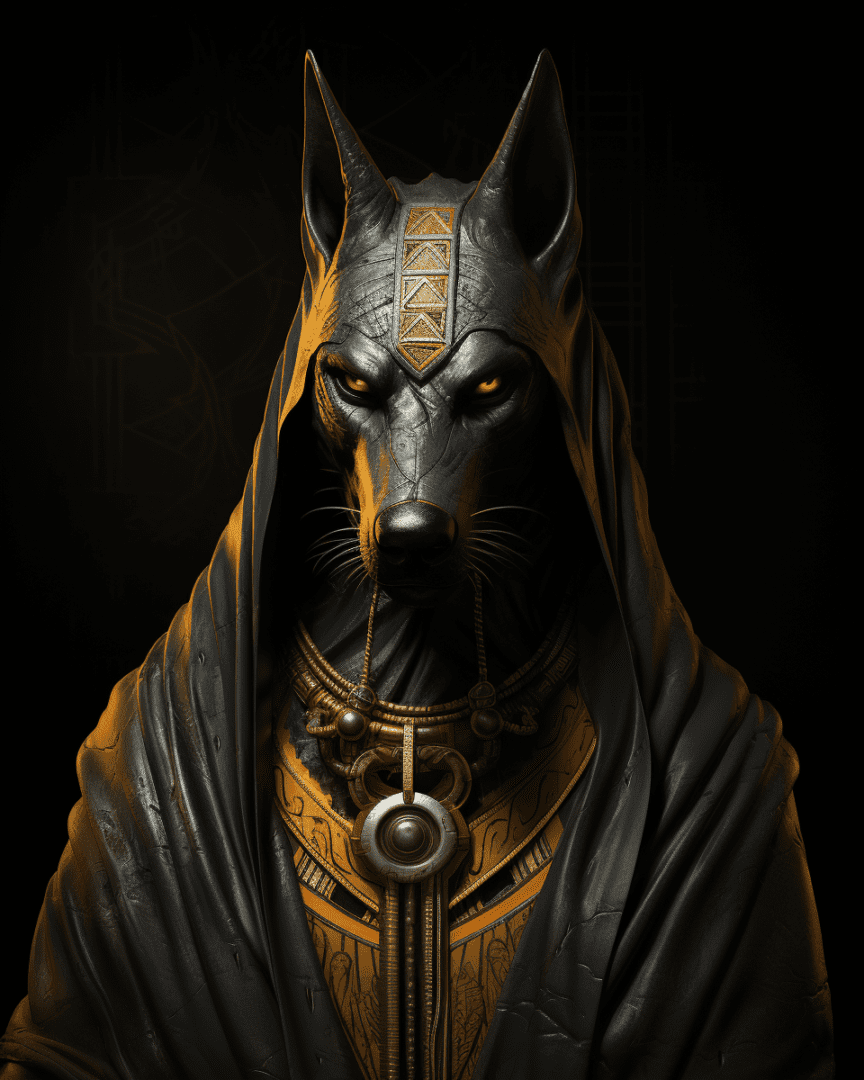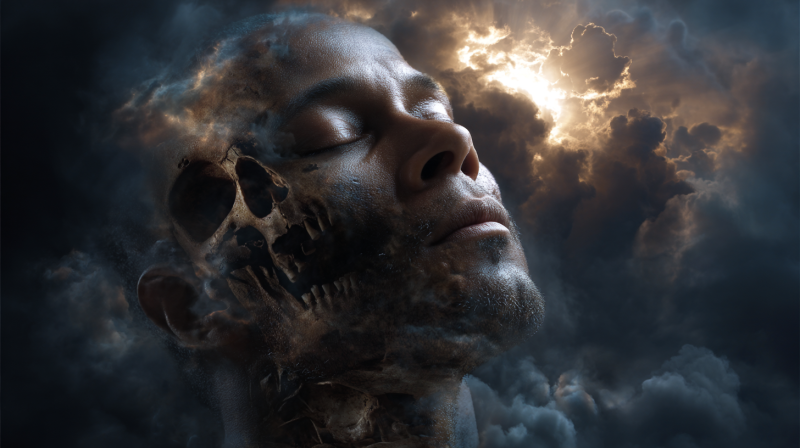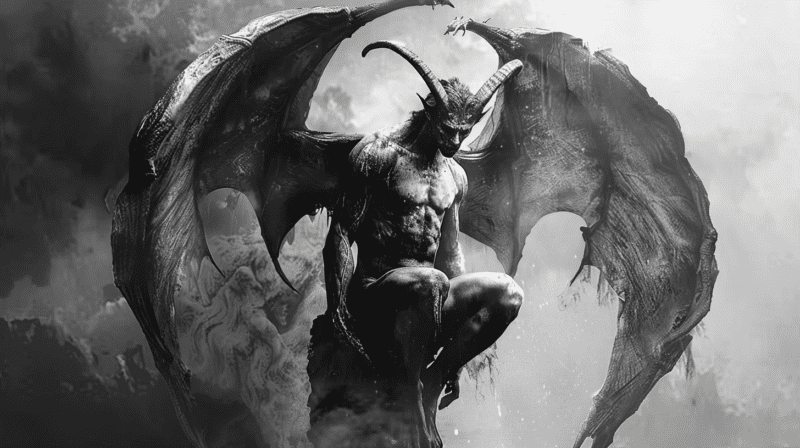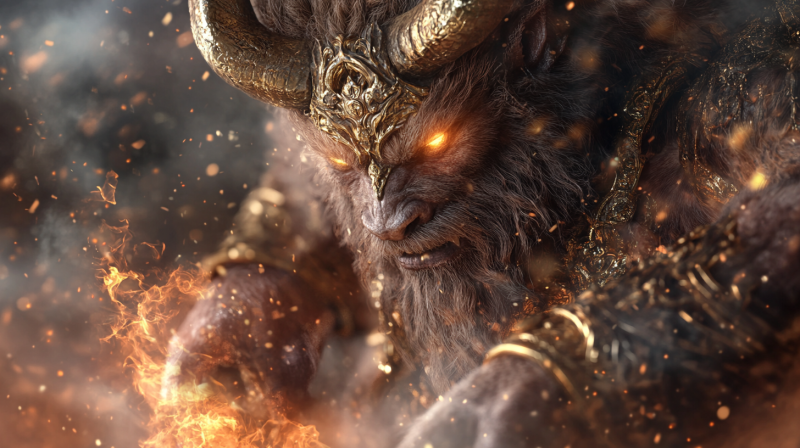The Ancient Egyptian God of Death and Afterlife
In the vast pantheon of ancient Egyptian gods, one deity stands out as the guardian of the dead and the ruler of the afterlife: Anubis. With the head of a jackal and the body of a man, Anubis played a crucial role in the religious beliefs and burial rituals of ancient Egypt. In this blog post, we will delve into the fascinating world of Anubis and explore the significance of this enigmatic god.
Anubis, also known as Anpu, was one of the most revered gods in ancient Egyptian mythology. He was believed to be the son of Osiris, the god of the underworld, and Nephthys, the goddess of mourning. Anubis was often depicted as a black jackal or a man with the head of a jackal, symbolizing his association with death and the desert. The jackal, being a scavenger, was believed to have a keen sense of smell that could lead souls to the afterlife.
He is thought to be Osiris’s son by Nepthys; however, his father is Set in certain stories. Anubis’ task is to weigh the souls of the deceased and decide whether they are worthy of admission to the underworld. He is the patron of lost souls and orphans as part of his responsibilities.
Anubis was also responsible for the embalming and mummification processes. The ancient Egyptians believed that preserving the physical body was essential for the soul’s journey into the afterlife. Anubis oversaw the meticulous process of removing the organs, preserving the body with natron, and wrapping it in linen bandages. These rituals were performed by priests who acted as embalmers, while Anubis watched over the process, ensuring its sanctity.

Anubis is usually depicted as half human, half jackal, or dog. The jackal has ties to Egyptian funerals; remains that were not properly buried may be dug up and eaten by hungry, scavenging jackals. Because of its link with the colors of rot and decay, Anubis’ skin is nearly invariably depicted as black. Because embalmed bodies tend to turn black, the hue is ideal for a funeral god.
After Set killed Osiris, it was Anubis’ task to embalm the body and wrap it in bandages, making Osiris the first mummy. Later, when Set sought to contaminate Osiris’ corpse, Anubis defended it and assisted Isis in resurrecting Osiris.
Osiris later became the deity of the underworld, and Anubis escorts the dead into his presence. A passage in the pyramid writings reads, “Get thee onwards, Anubis, into Amenti, onwards, onwards to Osiris.“
One of the primary roles of Anubis was to guide the souls of the deceased to the Hall of Judgment. It was here that the heart of the deceased was weighed against the feather of Ma’at, the goddess of truth and justice. If the heart was found to be lighter than the feather, the soul was deemed worthy of entering the afterlife. However, if the heart was heavier, it was believed that the soul had led an immoral life and would be devoured by Ammit, a fearsome creature with the head of a crocodile, the body of a lion, and the hindquarters of a hippopotamus.
Despite his association with death, Anubis was not feared but rather revered and respected. The ancient Egyptians believed that he possessed great wisdom and had the power to protect the dead from evil spirits. Temples dedicated to Anubis were built throughout ancient Egypt, and his cult was widespread. People would often pray to Anubis for protection, guidance, and a smooth passage into the afterlife.
Anubis’ influence extended beyond the realm of death. He was also associated with the cycles of life and rebirth. The jackal-headed god was believed to guard the tombs and cemeteries, ensuring the eternal rest of the deceased. This connection to rebirth and regeneration made Anubis an integral part of the Egyptian belief in the cyclical nature of existence.
Many ancient Egyptian sites contain prayers to Anubis. Later, he was assimilated into the Greek Hermes, along with Thoth, and was known for a time as Hermanubis. Egyptians thought Anubis, as a protector of cemeteries, looked over tombs from a high mountain. From this vantage position, he could observe anyone attempting to desecrate the graves of the deceased. He is frequently invoked as a deterrent to anyone who might plunder a tomb or do bad activities in the necropolis.
According to NS Gill, an expert on ancient history, “The cult of Anubis is exceedingly old, predating that of Osiris. Anubis may have been more important than Osiris in some places of Egypt… The religion of Anubis was not only ancient, but it also lasted a long period, lasting into the second century CE, and is mentioned in the Golden Ass, authored by the Roman author Apuleius.“
Prayer to Anubis
Use this simple prayer to call upon Anubis during a ritual to honor your dead.
O, Anubis! Mighty Anubis!
[Name] has entered the gates to your realm,
And we ask that you deem him worthy.
His spirit is a brave one,
And his soul is an honorable one.O, Anubis! Mighty Anubis!
As you take his measure,
And weigh his heart as he stands before you,
Know that he was loved by many,
And will be remembered by all.Anubis, welcome [Name] and deem him worthy of entrance,
That he may walk through your realm,
And be under your protection for all eternity.O, Anubis! Mighty Anubis!
Watch over [Name] as he bows before you.
Today, Anubis continues to captivate the imagination of many, with his iconic image frequently appearing in popular culture, movies, and books. His role as the guardian of the dead and the ruler of the afterlife has left a lasting legacy, reflecting the ancient Egyptians’ deep reverence for death and their belief in the continuity of life beyond the earthly realm.
In conclusion, Anubis, the ancient Egyptian god of death and afterlife, held a significant place in the religious beliefs and burial rituals of ancient Egypt. His role as the guide of souls, embalmer, and protector of the dead made him a crucial figure in the journey to the afterlife. Anubis’ association with death, wisdom, and rebirth continues to fascinate and inspire awe, reminding us of the rich and complex mythology of ancient Egypt.





